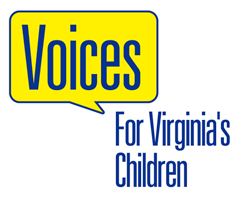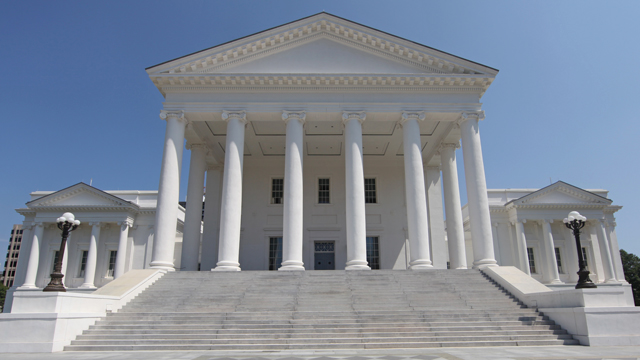If you got a little lost in all the media coverage about the General Assembly dealing with hospitals, guns, and judge appointments during the session that wrapped up mid-March, that’s certainly understandable. It happens every year. The hot-button issues take up the most airtime and ink, leaving many important changes in Virginia’s laws almost unnoticed.
Here is information about some substantive changes for kids and families during the 2016 session. Keep in mind, Governor Terry McAuliffe must sign all bills and the budget before they become law.
1. Improved access to mental health care for children: With one in five kids living with a mental health disorder and many children having to wait for, or go without, appropriate treatment, advocates and parents have pushed the state to increase access to mental health services. For the fifth year, the General Assembly increased funding for child psychiatry and for crisis response services for kids. In the budget, $3.5 million was added over the next two years, bringing the total statewide allocation for these community-based services to just over $10 million. In the Richmond area, funds are used primarily for the crisis stabilization unit at St. Joseph’s Villa that provides short-term residential and day programs for kids and their families experiencing a mental health crisis.
2. Baby steps forward regarding school discipline: Last year, a report by the Center for Public Integrity found that Virginia leads the nation in referring students to law enforcement. This means that routine school discipline issues are resulting in kids becoming involved in the juvenile justice system. National data shows that children with special needs and African American kids are disproportionately referred to law enforcement.
Several legislators of both parties made attempts to stop what is referred to as the school-to-prison pipeline, but only two minor changes made it through. One bill clarifies that school resource officers (SROs) exist to provide safety, not to be school disciplinarians. The other bill that passed provides for students with special needs who face charges due to their behavior at school to submit evidence in court that the behavior was a result of their special needs.
3. Getting kids moving in elementary school: Starting in the 2018-19 school year, all children in kindergarten through fifth grade will have to have a minimum of twenty minutes a day or 100 minutes a week of physical activity. The activity could be recess, physical education, or sports.
4. A win for grandparents raising grandchildren with kinship care: When kids can’t be with their parents, sometimes staying with relatives can be a successful alternative to entering the foster care system. Unfortunately in the past, these kids were not allowed to enroll in the school division where the relatives lived because the kids were not part of the formal foster care system. This added obstacle meant that many of these kinship care living arrangements fell through, and children had to enter the foster care system. Three years ago, the General Assembly passed a short-term law to test a new system, allowing relative caregivers to enroll the children in their care in local schools. Shown to be successful over the last three years, the General Assembly has now made that law permanent.
5. A boost for children aging out of foster care: After several years of considering the typically bleak outcomes for youth who age out of the foster care system with no family connections, Virginia’s legislature has included funding in the budget to assist them in transitioning to independence. Fostering Futures will allow youth ages eighteen to twenty-one who have aged out of foster care to receive specific supports, such as housing, as long as they are in school or working.
6. Measure to improve childcare safety: Tragedies in which children died in home-based childcare situations caused increased scrutiny on unlicensed providers in 2015 and again this year. While changes made to the law last year required more providers to get licensed and have fingerprint background checks, this year families whose children have died in unlicensed care pursued the effort to allow for criminal charges for negligent providers. Joseph’s Law, named after Joseph Allen, a 1-year-old who died in a fire in a home-based childcare arrangement in Chesterfield in 2014, passed this session. This bill makes it a felony for a provider to willfully disregard licensing requirements when a child is seriously hurt or killed in their care.
7. Consequences for smoking in the car with children: Acknowledging the health dangers of second-hand smoke, the General Assembly passed a bill making it a civil offense, subject to a $100 penalty, to smoke in a car with a child under the age of eight. This will be a secondary offense, meaning the police must stop the driver for another reason.
8. A win by a kid! Official Commonwealth of Virginia reptile: Okay, so this one technically doesn’t affect families and kids in particular, but it does show that kids are able to influence public policy. The eastern garter snake will now be the official reptile of Virginia, thanks to the work of Williamsburg sixth-grader Aiden Coleman. This student developed the proposal in a science camp last summer and brought it to his delegate, who introduced the bill this session.
Thousands of citizens weighed in on these and other issues affecting children and families during the 2016 session of the General Assembly. Perhaps you were you one of them.





